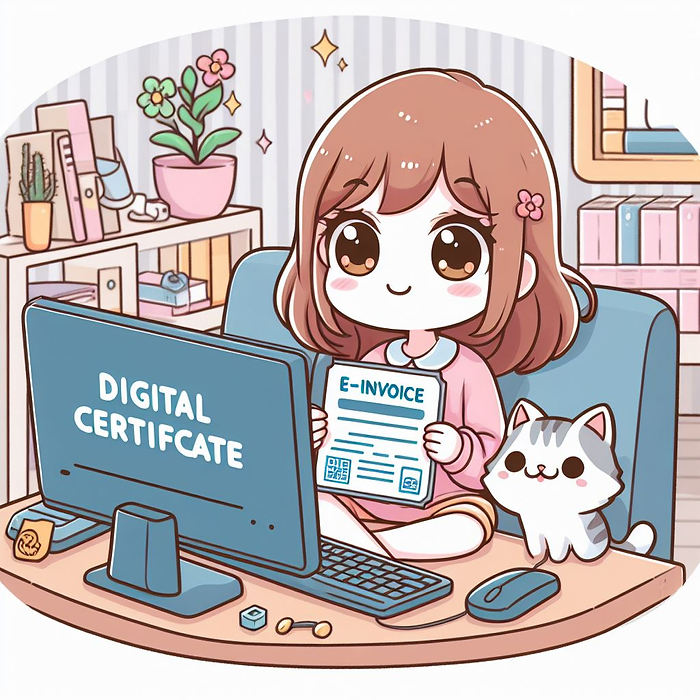The removal of “Scholarship” from the list of exemptions in Section 1.6.8 of the e-Invoice Guideline Version 2.3 indicates that scholarships will now require the issuance of e-Invoices.
Potential Rationale:
The rationale for removing the scholarship exemption is to leverage the benefits of the e-invoicing system.
This system ensures better transparency and documentation of scholarship payments/disbursements, which can lead to more efficient financial management and reduced administrative burden.
By requiring e-invoices for scholarships, the issuing institutions (universities, organisations, etc.) must generate validated self-billed e-invoices for the scholarship amounts paid to students/recipients.
This allows for:
1) Proper recording and tracking of scholarship payments in the e-invoicing system.
2) Validation and authentication of scholarship e-invoices by IRBM.
3) Easier reporting and documentation for both the issuer and recipient.
4) Alignment with the overall move towards comprehensive e-Invoicing adoption.
e-Invoicing Impact:
1) Institutions/organisations issuing scholarships will now need to ensure their processes are updated to generate and issue self-billed e-Invoices for scholarship payments.
2) Students/recipients of scholarships should be prepared to receive self-billed e-Invoices instead of traditional documentation.
3) The self-billed e-Invoices received can serve as valid proof of scholarship income for students/recipients for tax purposes or other documentation needs.
4) Issuing institutions may need to make system changes, update templates, train staff, etc., to facilitate self-billed e-Invoice generation for scholarships.
5) There could be an initial transition period where some scholarship payments may still be documented through traditional means until the e-Invoicing process is fully adopted.
In summary, the removal of the scholarship exemption brings scholarship payments into the scope of e-Invoicing requirements, likely to improve transparency, documentation, and aligned with the overall digitalization of tax administration processes.
Here’s how the self-billed e-Invoicing process would work for scholarships:
For institutions/organisations issuing scholarships to students who do not run a business, the e-Invoicing process should be:
1) The institution/organisation would issue a self-billed e-Invoice treating the student as the “Supplier”.
2) In the self-billed e-Invoice, the student’s personal details (name, address, identification number) would go in the “Supplier” fields.
3) And the institution’s own details would go in the “Buyer” fields.
4) The description on the self-billed e-Invoice would be something like “Scholarship to [Student Name]”
5) The institution is essentially self-billing an e-invoice as if they are the “Buyer” by paying the scholarship amount to the “Supplier” (student).
《电子发票指南 2.3 版》第 1.6.8 节的豁免清单中删除了 “奖学金”,这表明奖学 金现在需要开具电子发票。
潜在理由:
取消奖学金豁免的理由是为了充分利用电子发票系统的优势。
该系统可确保奖学金支付/拨付的透明度更高,文件更完备,从而提高财务管理效率,减轻行政负担。
通过要求提供奖学金电子发票,发放机构(大学、组织等)必须为支付给学生/受助人的奖学金金额生成经过验证的自行开具的电子发票。
这样可以:
1) 在电子发票系统中正确记录和跟踪奖学金的支付情况。
2) IRBM 对奖学金电子发票进行验证和认证。
3) 为发放者和接受者提供更简便的报告和文件。
4) 与全面采用电子发票的整体行动保持一致。
电子发票的影响:
1) 发放奖学金的机构/组织现在需要确保更新其流程,以生成和开具自行开具的奖学金电子发票 (self-billed e-invoice)。
2) 奖学金的学生/受益人应准备好接收自行开具的电子发票(self-billed e-invoice),而不是传统的文件。
3) 学生/奖学金获得者收到的自行开具的电子发票(self-billed e-invoice)可作为奖学金收入的有效证明,用于纳税或其他文件需要。
4) 发放机构可能需要更改系统、更新模板、培训员工等,以方便为奖学金生成自开电子发票(self-billed e-invoice)。
5) 在完全采用电子发票程序之前,可能会有一个初始过渡期,在此期间,一些奖学金付款可能仍通过传统方式记录。
总之,取消奖学金豁免将奖学金支付纳入电子发票要求的范围,可能会提高透明度,改善文件记录,并与税收管理流程的整体数字化保持一致。
以下是奖学金自行开具电子发票(self-billed e-invoice)的流程:
对于向不经营企业的学生发放奖学金的机构/组织,电子发票开具流程应为:
1)机构/组织将开具自开票电子发票(self-billed e-invoice),将学生视为 “供应商”。
2)在自开电子发票(self-billed e-invoice)中,学生的个人资料(姓名、地址、身份证号码)将填入 “供应商 “栏。
3)机构的详细资料将填入 “买方 “字段。
4)自行开具的电子发票(self-billed e-invoice)上的描述应类似于 “给 [学生姓名] 的奖学金”。
5)从本质上讲,该机构是在向 “供应商”(学生)支付奖学金金额,从而以 “买方 “身份自行开具电子发票(self-billed e-invoice)。






